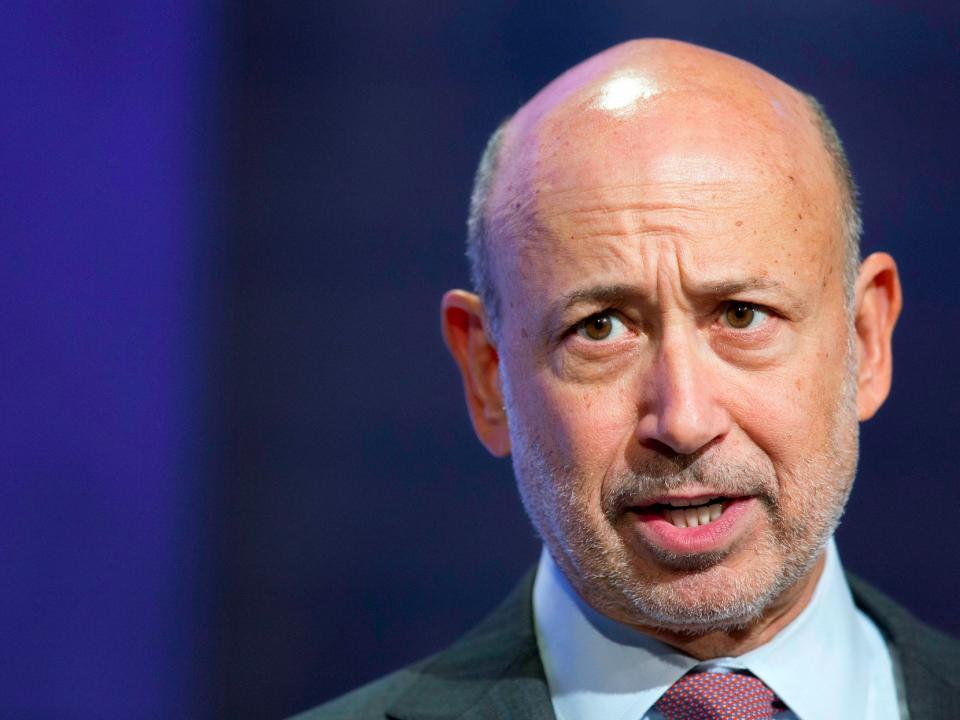Goldman Sachs allegedly 'misled' its Libyan clients into placing a $500 million bet on Citi right before the 2008 crisis

A former Goldman Sachs salesman used a "misleading" presentation to encourage Libya's sovereign wealth fund to sign a deal exposing them to $500 million of Citigroup stock right before the 2008 financial crisis, a London court heard on Friday.
The LIA was set up in 2006 to invest Libya's oil wealth internationally. The organisation claims Goldman Sachs took advantage of the low level of financial literacy of LIA staff, and suggested large and risky trades that led to heavy losses for the Libyans and large margins for the bank.
Lawyers for Goldman Sachs, responding to the claims earlier, said that the LIA was suffering from "buyers' remorse," and that the bank wasn't responsible for the losses, which were caused by the 2008 credit crunch and financial crisis.
Philip Edey QC, the LIA's lawyer, said the LIA thought they would end up owning underlying shares in Citigroup and receive dividends to pay off a loan from Goldman Sachs to help finance the deal. Instead, they got a structured derivative based on Citigroup shares.

REUTERS/Ismail Zitouny
Edey suggested that Goldman Sachs CEO Lloyd Blankfein had concerns over deals done with the LIA.
"I need an update on this trade please, I have been told by Lloyd and Alen Cohn (our chief counsel) that any trade with this client will be run by me for suitability reasons. Who is running with this trade? Tk" former Goldman partner Yusuf Aliredha said in an email to both Vella and former partner Driss Ben-Brahim, according to court documents.
Vella said those reasons were "more to do with the perception of Libya in the US" as a troubled country recently freed from international trade embargoes and not to do with the complexity of the deal.
The title of the investment presentation to the LIA – "Structuring a Minority Investment in Citigroup" – suggested owning shares, Edey said.
Under cross-examination from Edey, Goldman Sachs Asia Investment Banking Co-Head Andrea Vella, denied the presentation, which used the phrase "pledge of shares," was fundamentally misleading but said someone reading it could "get the impression" the deal involved receiving dividends.
He said the "pledge of shares" phrase in describing the deal was "a mistake. It's inaccurate."
The presentation was finalised by Youssef Kabbaj, a former Goldman Sachs salesman embedded with the LIA. In correspondence from Kabbaj to Vella dating from 2007 and 2008, read out by Edey, Kabbaj said "I feel more compelled to get a great trade or die trying."
The court also heard how Kabbaj broke Goldman Sachs' client contact policy by sending presentations with an old formulation of the deal, that did involve buying the underlying Citigroup shares, to the LIA via his personal email without copying another Goldman Sachs employee.
Addressing Vella, Edey said: "Are you concerned by the fact that he did that? He sent two presentations from 2007 to the LIA from his personal email address without copying in anyone from Goldman Sachs."
Vela said: "It's speculation but maybe he was just sending some old presentations to the LIA" without the intention to mislead them into thinking they related to a new deal without a share purchase agreement.
Ben-Brahim encouraged Kabbaj to "own" the client because it presented "a once in a career opportunity," according to excerpts of emails read out in court on Thursday.
Vella said in a witness statement made available to journalists that his impression of Mohamed Layas, the CEO of the LIA, was that he was "an experienced and capable financial professional" and capable of understanding the trades carried out with Goldman Sachs.
The trial is scheduled to last until August.
See Also:
GOLDMAN: The British pound might not be the only victim in post-Brexit Europe
Goldman Sachs took Libyan officials on a £22,000 expenses-paid trip to London
SEE ALSO: 'You need to own this client:' How Goldman Sachs landed a Libyan 'elephant'

 Yahoo Finance
Yahoo Finance 
